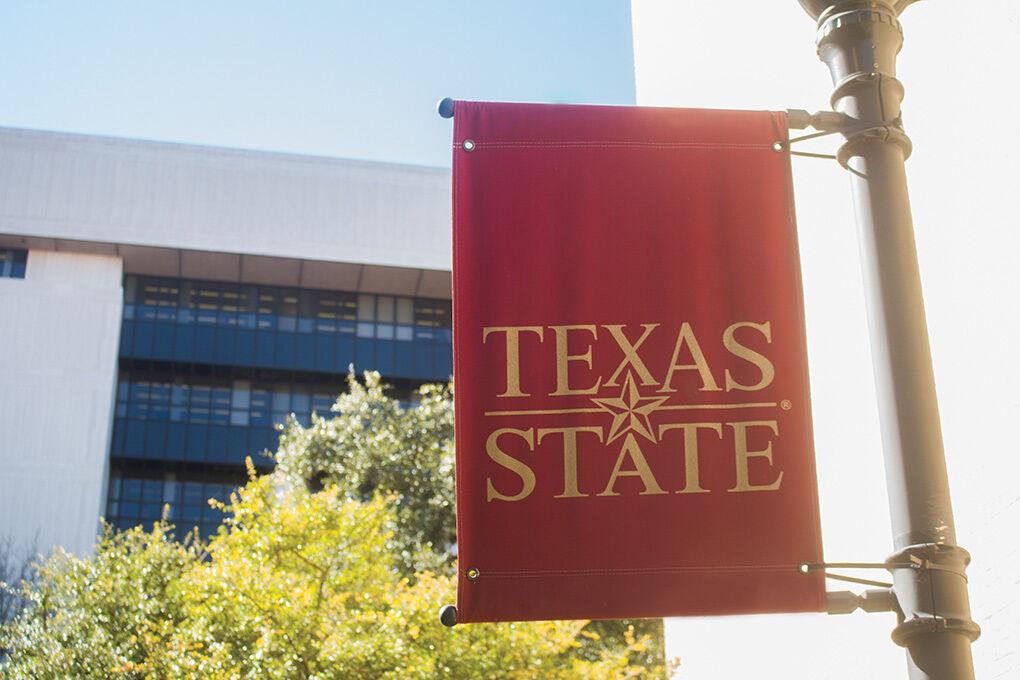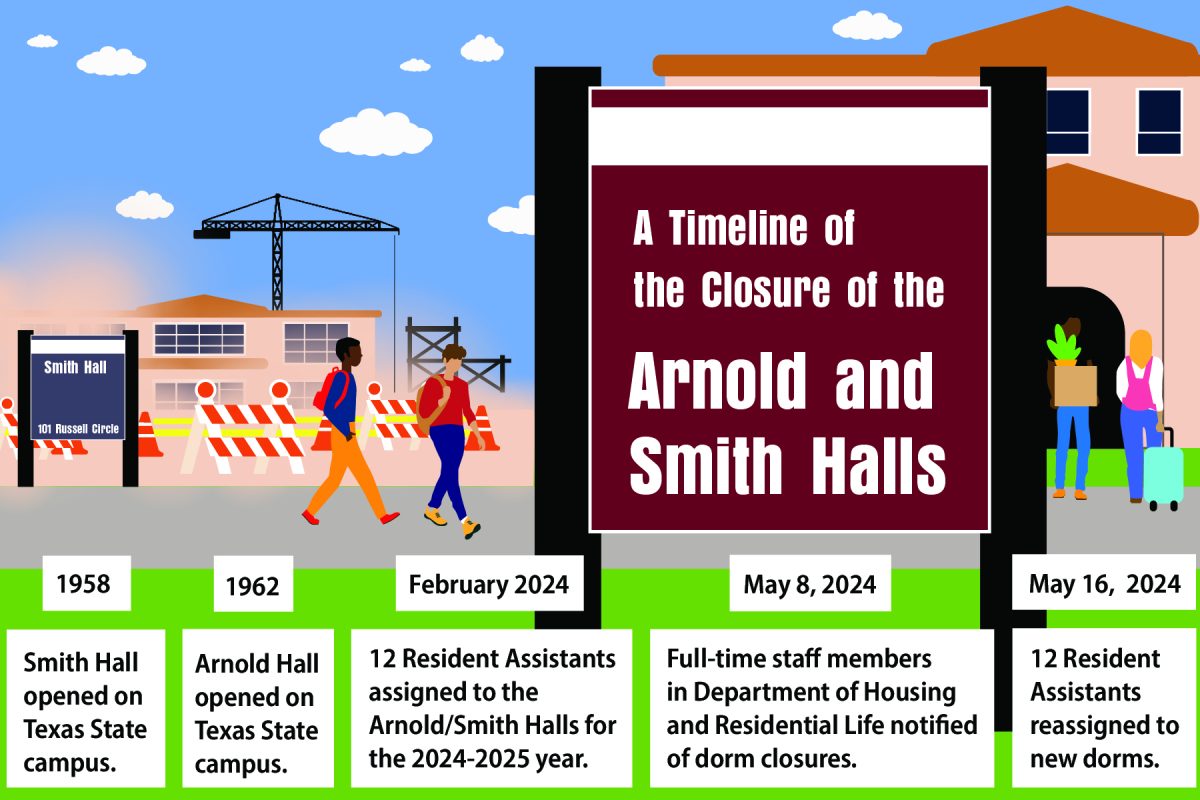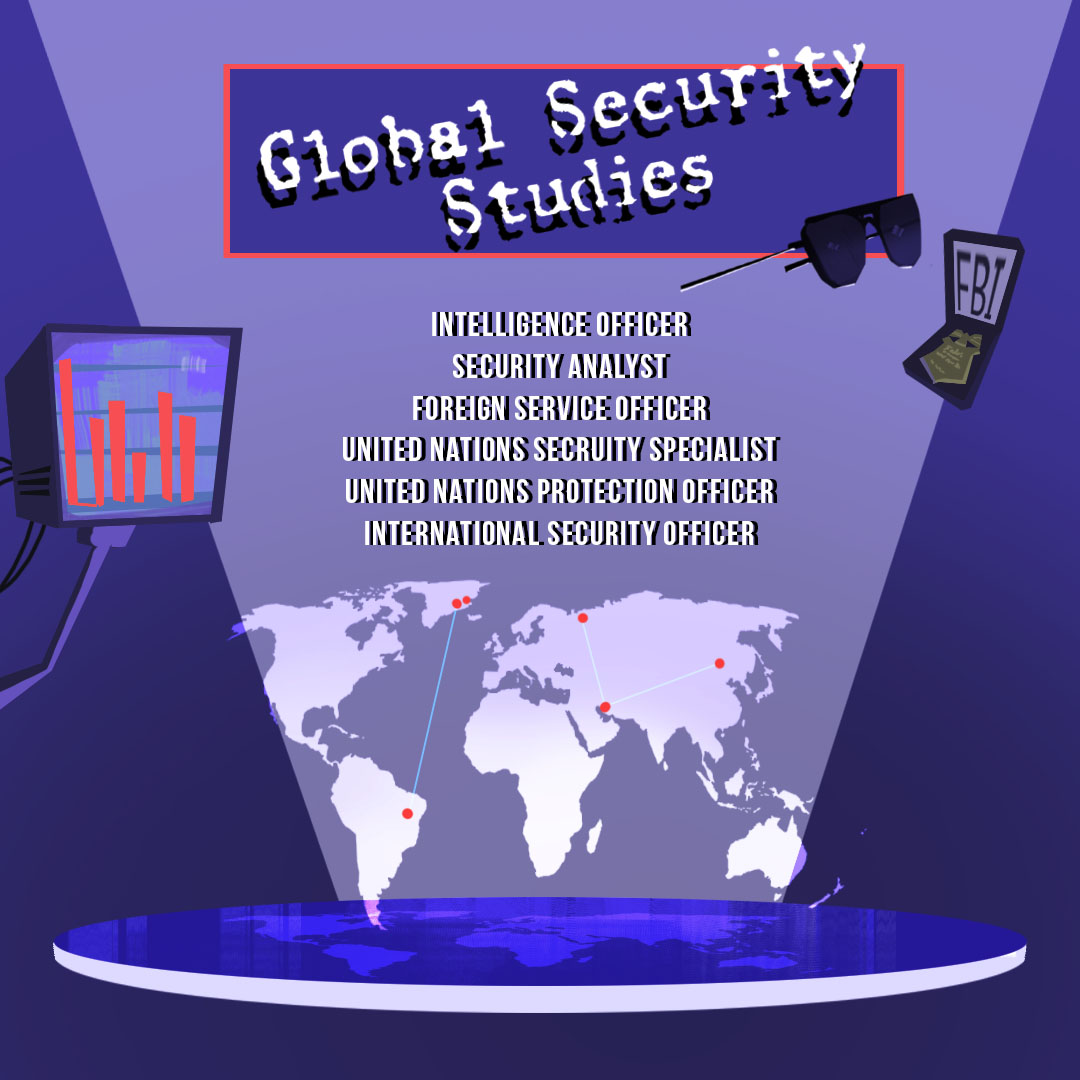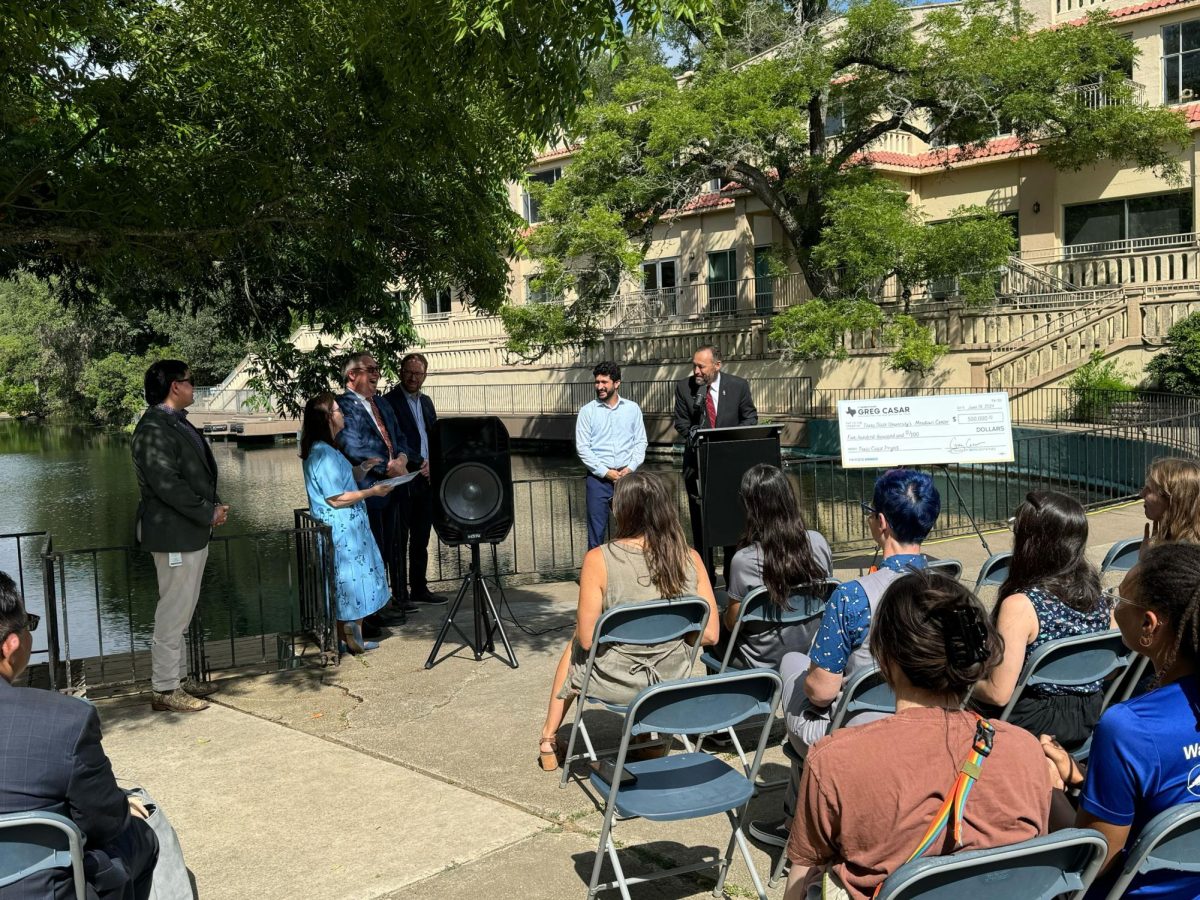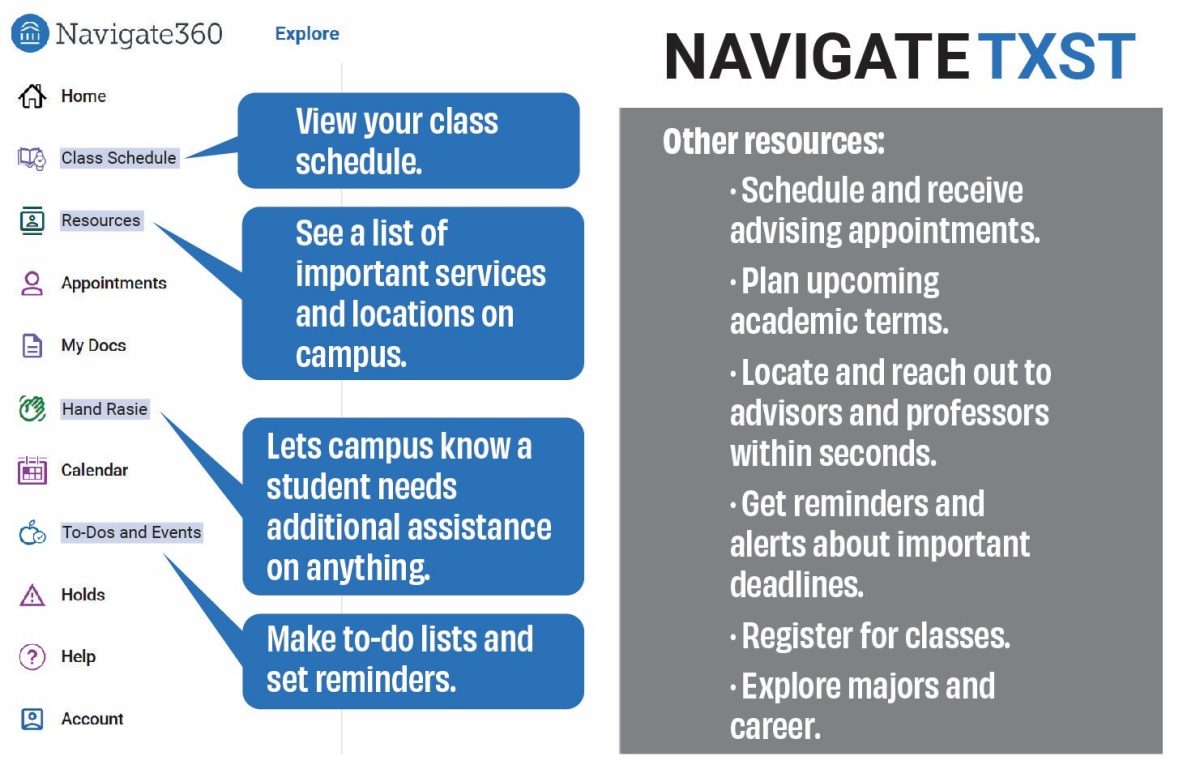One Texas State professor will be taking his research to help prevent HIV in Latino communities.
Moctezuma Garcia, social work assistant professor, is set to travel to the Biomedical HIV Prevention Summit in New Orleans Dec. 4, to deliver speeches discussing the issue of HIV transmission and Latino males. He will also be studying the cultural barriers of HIV.
Garcia will also be discussing a preventative medicine, pre-exposure prophylaxis (PREP). Through his research, Garcia has studied a cluster of around 60 Latino males in the San Antonio area that are HIV positive.
“The conference is going to focus on strengths and limitations (of) the population accessing PREP as an opportunity to prevent HIV transmission,” Garcia said. “In regard to (patient) concerns about going to the clinic, I will discuss the different methods we can practice to provide PREP to the community. This is where peer outreach advisors can be trained to work with (and) educate the community about PREP and its availability to prevent transmission.”
There are many reasons contributing to the HIV epidemic in Texas. Most of these reasons come from social stigmas that cause certain groups of people to believe that they are not at-risk based on their sexual orientation and other characteristics, Garcia said.
“HIV is an epidemic, and it is spreading throughout Texas. (There is) a cluster in San Antonio (of) Latino men who have sex with men (MSM) (who) are infected with HIV,” Garcia said. “Currently, men are sleeping with each other and not using condoms, increasing the risk (of) transmission because a lot of men are not aware that they are HIV positive.”
Since society has established these stigmas regarding HIV, there are communities full of people who do not believe they could be at risk of contracting HIV, Garcia said.
“This is why it is really important to get tested on an annual basis, regardless of your sexual identity or orientation,” Garcia said. “A lot of people assume they aren’t at-risk because they are straight, gay, or bisexual so they don’t use condoms or get tested. They make themselves vulnerable to HIV transmission.”
Garcia also discussed the impacts of the epidemic caused by cultural aspects of society.
“There is a strong emphasis on black men who have sex with men, so people who aren’t (in) that population assume they aren’t at-risk,” Garcia said. “Based on the information available, Latino men in San Antonio don’t consider themselves at-risk because they aren’t part of the black MSM population.”
As HIV is an epidemic in the state of Texas, Garcia believes that annual check-ups are vital to our community and to prevent transmission.
“One of the things I encourage everyone to do is support each other in getting an annual HIV test,” Garcia said. “Free testing on campus is (an) important service to take advantage of. Even if you are infected, it doesn’t mean you have a death sentence now (that) it is considered a chronic disease.”
The Student Health Center provides free HIV tests. Call and make an appointment at the Student Health Center to have your annual STI screening, 512-245-2161.
Professor studies HIV risk in Latino populations
November 18, 2017
Donate to The University Star
Your donation will support the student journalists of Texas State University. Your contribution will allow us to purchase equipment and cover our annual website hosting costs.











